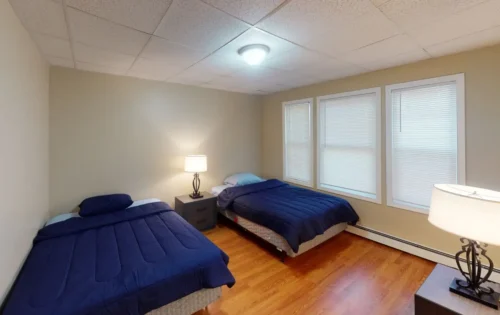
To a lot of people, that may seem draconian, but for those who have experience with the ways in which addicts and alcoholics put their families through emotional distress, it’s completely understandable. Drug courts order offenders with substance addiction to enroll in a supervised medical facility instead of sending them to prison. However, the person must have been arrested, pleaded guilty, and agreed to get supervised medical treatment. Before we answer the question, you need to understand the two primary types of commitment in addiction treatment – voluntary and involuntary admission. Voluntary commitment is when an individual willingly agrees to enroll in rehab.

Can you send someone to rehab without their consent?
- Some states have more ambiguous guidelines for the maximum length of treatment.
- When he’s not writing, Moore loves to travel, laugh and put his mental health into the hands of the Tennessee Titans during football season.
- But if they refuse treatment and are not an immediate threat, you cannot force them into rehab.
People who need to be involuntarily committed are no longer able to engage in self-control and have a high possibility of hurting themself or others. The Baker Act defines mental illness as an excluding condition that only manifests when a person engages in substance use disorder and becomes impaired. If involuntary commitment laws are used to admit someone for treatment, they must be admitted to an addictions receiving facility. However, according to this study about civil commitment in the United States, in most cases, these laws are rarely used by families, physicians, or judges because of less awareness, less precedence, and other factors.
Court-Ordered Drug Rehab
The course of treatment for addiction depends on each person’s circumstances. Most begin with a drug or alcohol detox followed by intensive psychological therapy. However, someone with a behavioural addiction won’t require a drug detox and so may decide that behavioural therapy is better suited to their situation. Others with more severe addictions will always be advised to opt for inpatient rehab to ensure their how to get a family member into rehab safety during the detox process. In 2018, in the United States, there were 67,367 drug-involved overdose deaths. This number is alarming, causing family members and lawmakers to look at ways to prevent these accidental deaths.

Can You Force Someone into Rehab? Involuntary Commitment

If you’re asking how to get someone into rehab, you may be wondering about the difference between an intervention and involuntary commitment. While both approaches involve helping someone enter treatment, they differ in their methods. While the commitment may start with an involuntary stay, how long they stay in rehab can ultimately depend on their progress and the professional evaluation of their readiness for release. Even if they are not actively engaging in treatment, the goal is always to help them reach a level of stability where they can make informed decisions about their recovery. How long involuntary care lasts in NC depends on the court ruling where the judge decides the time for which a person may be committed in the process. The right approach to rehabilitation can be key to steering someone down the path of recovery.
Not finding what you’re looking for?
Watching a loved one suffer and struggle with a substance use disorder is painful, especially if you’ve tried everything to help them. After researching and trying all these options, you may be looking at involuntary drug or alcohol rehab as a last resort. There’s a lot to consider, but it’s best to fully understand the protocol and all the resources at your disposal before you make a decision.
- In this section, we will discuss communication strategies and intervention techniques to guide your loved one toward treatment.
- Forced drug detoxification in one study had a relapse rate of 98% within the first year, with 22% relapsing within three days and 52% relapsing within one month.
- Others with more severe addictions will always be advised to opt for inpatient rehab to ensure their safety during the detox process.
- These people need to be unable to determine their own needs for treatment.
- Using the law to motivate treatment should be a last resort; getting to this point is in no one’s best interest.
Treatment Programs
- Sunshine Behavioral Health strives to help people who are facing substance abuse, addiction, mental health disorders, or a combination of these conditions.
- Calls to our general hotline may be answered by private treatment providers.
- This means placing them in rehab against their will goes against the person’s civil freedom.
How can a contact commit someone in PA is based on the involuntary rehab laws of the state? These laws also include the 302 commitment PA law, according to which a person with a severe mental disturbance may be admitted to a health facility or hospital against his will. The 302 laws in PA allow for such a commitment to be carried out for a maximum of 120 hours.
The person has decided to address their addiction by seeking treatment. When an addict is committed to their recovery, such as when they voluntarily commit themselves, it’s been shown that 68% of people will be Alcoholics Anonymous successful and committed to their recovery. In other words, an individual can overcome substance abuse and lead a healthy and long life; it just takes one choice.
- For some who suffer from substance abuse, talking to them about their behavior and your concerns is enough to get them to seek treatment.
- Our writers and reviewers are experienced professionals in medicine, addiction treatment, and healthcare.
- Difficulties may arise during an intervention, but it’s important to understand that the goal of the process is not to create a tension-filled environment.
- Addiction is difficult to overcome, but what should you do when a loved one refuses to seek help?
- It should not be used to replace the suggestions of your personal physician or other health care professionals.
Why Substance Users Resist Rehab

Therefore, it is important to know your specific state laws before attempting to put a loved one in forced rehab. Involuntary commitments to residential mental health treatment facilities in Tennessee are covered in Chapter 6, Part 5, of the Tennessee Code. The Code’s definition of mental illness includes addiction to alcohol and other drugs, so the information in that section can help you determine if you can make someone go to rehab.